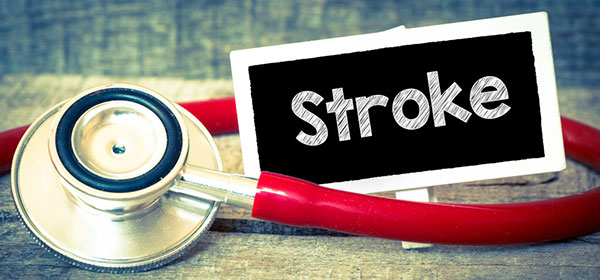A stroke is what happens when blood flow to an area of the brain is cut off. Brain cells are deprived of oxygen and begin to die. When brain cells die during a stroke, this can lead to loss of control over memory, muscle and speech abilities. Described as a kind of ‘brain attack’, a stroke can happen to anyone at any time. Here are some things you can do to help guard against stroke.
1. Watch your blood pressure
High blood pressure can be a source of concern. If it’s not managed, high blood pressure can double or even quadruple your risk of having a stroke. A healthy blood pressure is around 120 over 80. Be sure to have yours checked regularly by a GP. If it gets too high, your doctor may advise you to change your diet and begin exercising more regularly. In some cases, medicine to lower blood pressure may also be prescribed.
2. Spring into step
Exercise is great for your heart because like all muscles, it becomes stronger the more you use it. With every beat, a stronger heart allows for more blood to be pumped through the body. Just 30 minutes of exercise or more on most days has been found to aid weight loss, lower your risk of heart disease, decrease your cholesterol and lower your blood pressure by as many as five to seven points.
3. Stress less
It’s no surprise that stress is linked to a higher probability of stroke, in part because it causes a spike in certain chemicals in the brain and inflammation in parts of the body. If you’re experiencing stress at work or in the home, there are a few things you can do to help reduce it: getting away from the stressful environment, breathing deeply and focusing on one thing at a time can all help. You might also consider trying meditation or talking to a trusted friend or to a counsellor.
4. Have a drink
Some studies suggest that having an alcoholic drink can help reduce your risk – but just the one. Heavy drinking has been linked to obesity, high blood pressure and diabetes, all of which contribute to stroke, so always take care to drink in moderation.
5. Check your cholesterol
Not all cholesterol is bad. In fact, high-density lipoprotein (HDL) cholesterol provides your body’s cells with ‘good’ fats to function well. Meanwhile, low-density lipoprotein (LDL) or ‘bad’ cholesterol contributes to thick, hard deposits of plaque, which can harden the arteries and make them less flexible. High levels of LDL make you more prone to heart attack or stroke as it limits blood flow (a main factor in stroke). To reduce your LDL cholesterol and increase your HDL cholesterol, cut down on saturated and trans fats foods and exercise more often.
Related articles:
Online tool for stroke recovery
How to recognise a stroke
Heart disease and what to do

